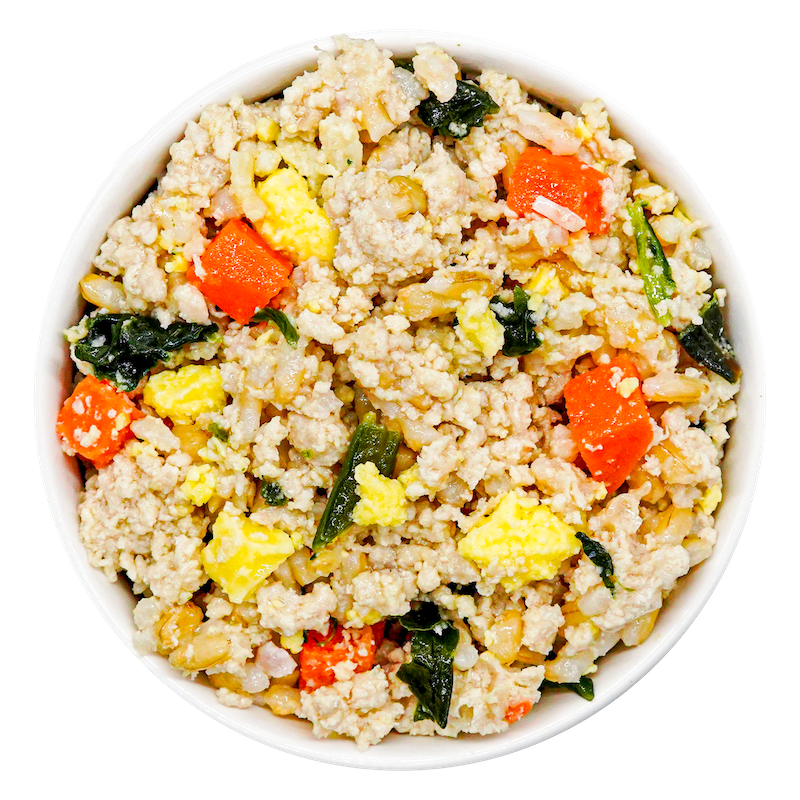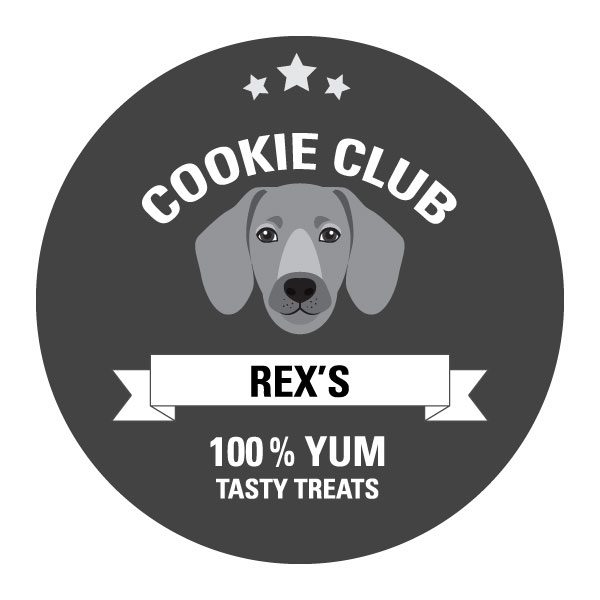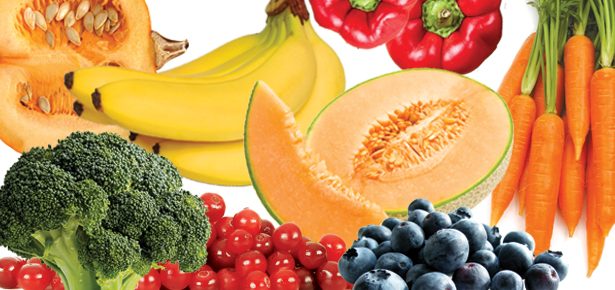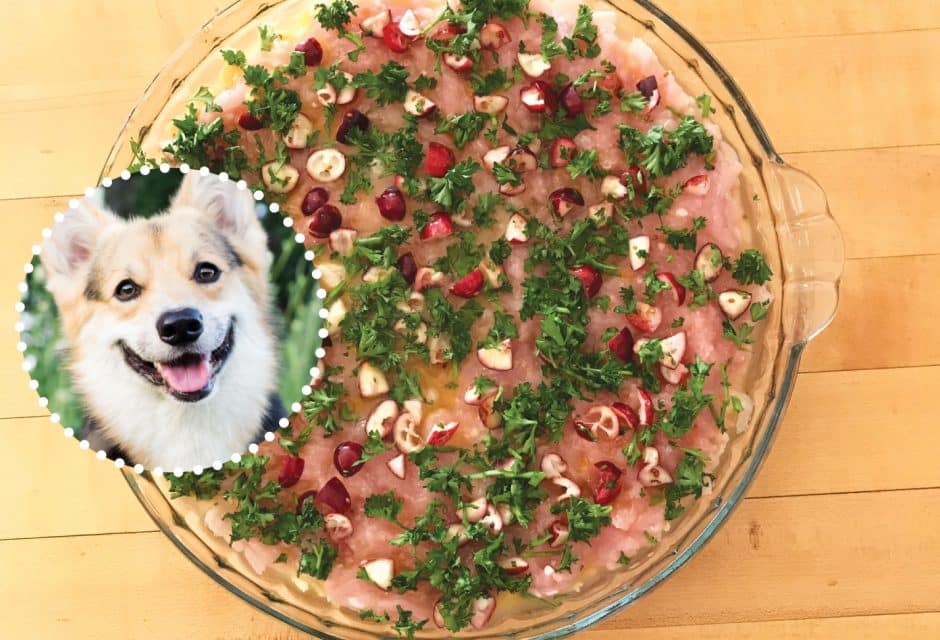

Brain Food for Dogs: Preventing CDS
Keep your dog mentally sharp and fight canine cognitive dysfunction syndrome with an antioxidant rich diet and plenty of mental stimulation.
One of the hardest parts of living with dogs is watching them age, help prevent cognitive dysfunction syndrome (CDS) with these brain games and foods.
The signs of aging can be subtle: first Rex loses his puppy silliness, then he becomes a little slower on walks and likes sleeping in a little more and, before you know it, there is a little grey on his muzzle. Happily, thanks to advances in nutrition and health care, it’s not unusual for a small-breed dog to live well into his teens, and even large-breed dogs are living longer, healthy lives. However, with these longer lives, our dogs face new health challenges.
A common issue for our senior canines is canine cognitive dysfunction syndrome (CDS), a disorder strikingly similar to Alzheimer’s disease in humans. As they age, dogs may forget how to do things and seem disoriented or forgetful. They may start to have accidents in the house, wake up at night, seem restless or bark without cause. These can all be signs of CDS. Studies have shown that CDS causes changes in a dog’s brain similar to those of Alzheimer’s disease in humans. In fact, dogs have been used as models for studying Alzheimer’s in humans. Progression of CDS is typically very gradual and early symptoms are attributed to normal aging (he’s barking because his hearing is bad, he’s disoriented because his eyesight is failing, etc.). To determine if the problems are actually caused by CDS, a veterinarian will perform tests to rule out medical causes and will use the results together with information the owner provides about changes to the dog’s behaviour.
For dogs that have been diagnosed with CDS, there are prescription medications available to help manage the disease. However, whether or not your dog has CDS, you can help prevent or slow down the progression of this condition and keep your senior dog’s brain sharp and functioning well through “brain teasers” that you can do at home with your dog and with “brain foods” that you add to your dog’s diet.
Brain teasers help reduce loss of brain functions
Studies have shown that, just like people, dogs that don’t use their brains lose some of the higher functions such as problem-solving ability. One of the best things you can do is to provide mental stimulation for your dog. This will help to slow the neurological (brain) signs of aging. Taking your dog for regular walks and varying the route, playing with her, teaching her new tricks and giving her puzzle toys will all help her to use her brain and stay sharp.
Research has also shown that using brain teaser toys in puppyhood also helps prevent the onset of CDS. Brain teaser toys are any toys that require the dog to solve a puzzle to get the prize—for example, Kongs, kibble balls, and food puzzle toys. Research has also found that dogs that participated in adult training classes were less likely to develop CDS. Adult training classes could be agility class, obedience class, tricks class, or other dog sports.
Brain food: feed your dog food with antioxidants
Like humans, dogs can undergo changes in their brain such as beta-amyloid accumulation and oxidative damage. The accumulation of beta-amyloids and oxidative damage appear to be connected. Researchers have found that these physiological changes are related to the development of CDS.
Antioxidants are commonly talked about in human health and medicine, and researchers have studied the effects of feeding a diet high in antioxidants to older dogs to see if there is an improvement in age-related cognitive dysfunction. What they have found is both promising and exciting. Older dogs that received a diet rich in antioxidants showed improvement in learning and spatial attention within two weeks of starting the enriched diet. When diet was combined with mental stimulation such as walks, housing with another dog, and training, the effects were even greater. In tests used to measure an elderly dog’s spatial memory and its ability to discriminate between objects, recognize objects, and adjust to new situations, dogs on diets high in antioxidants fared better than a control group of dogs fed a normal diet.
A typical antioxidant-enriched diet for humans contains Vitamin E, vitamin C, L-carnitine, DL-lipoic acid, and fruit and vegetable extracts. A pre-made similar diet for dogs made by Nom Nom is available by monthly subscription, but if you’d like to like to add some extra brain boosting foods at home, here are a few you can try:
Vitamin E: Add supplemental Vitamin E at up to 100 IU per day for a small-breed dog and 400 IU per day for a large dog. If your dog’s diet already contains large amounts of vitamin E, you may not need to add extra.
Vitamin C: Vitamin C is a very safe vitamin, usually requiring very large doses before side effects are seen. However, there is little benefit to providing mega doses of this. Try adding 50-100 mg per day depending on the size of your dog.
Fruits and Vegetables: Add fruits and vegetables to make up to 10 percent of your dog’s diet. Colourful fruits and veggies are likely to have the most benefits, so try things like blueberries, raspberries, spinach, carrots, tomatoes etc. Be careful that you don’t upset your dog’s stomach with these, so go slowly and add just a bit at a time. For a small dog it may not feel like you are adding any significant amount, but that’s okay, remember it doesn’t take much to make a difference for them.
Preventing CDS From the Puppy On Up
While the research only showed positive effects of high antioxidant diets in dogs that were older at the start of the studies, you may want to start feeding your dog’s brain when he is younger to help prevent problems from developing. Research has shown that puppies fed a diet high in fish oil (DHA) scored higher on trainability tests. In addition, rat fetuses from mothers that were fed a diet high in DHA had greater brain and nerve development. When an expectant bitch is fed a diet rich in DHA during the last three weeks of gestation, her puppies reap the greatest neurological benefits. If there is earlier development in the puppy’s brain, they can begin learning earlier and the more learning that a puppy does, the lower the chance of developing CDS later on in life. If your dog is pregnant, make sure she eats a diet rich in DHA, such as one based on commercial puppy foods, which usually contain appropriate levels of DHA. If you are making your own food for your puppy or your pregnant female, consider adding salmon oil to his or her food. If you are feeding a raw-based food, do not feed raw fish more than once a week without supplementing additional thiamine (vitamin B1). Raw fish naturally contains thiaminase and feeding high amounts of raw fish can result in a thiamine deficiency.
A healthy lifestyle that incorporates physical activity, social engagement, and cognitive-enhancing activities, along with adequate intake of dietary antioxidants, has been shown to reduce the risk for developing neurodegenerative disease in dogs and humans alike. So to help keep you both mentally sharp, consider sharing a healthy veggie or fruit platter with your dog and inviting her to work on the crossword puzzle with you.
Fresh-made food. We tried it. Your dog will LOVE this food. Feeding our dogs healthy, balanced meals is extremely important for their health and wellness but busy schedules can prevent us from making them ourselves. Try Nom Nom, delivering fresh, pre-portioned, nutritious meals to fit any dog’s diet.—Ed.
*We promote only the best information and products for our readers, some of which give Modern Dog a small amount when you purchase. Thank you for your support!
Join the newsletter and never miss out on dog content again!
"*" indicates required fields
By clicking the arrow, you agree to our web Terms of Use and Privacy & Cookie Policy. Easy unsubscribe links are provided in every email.








